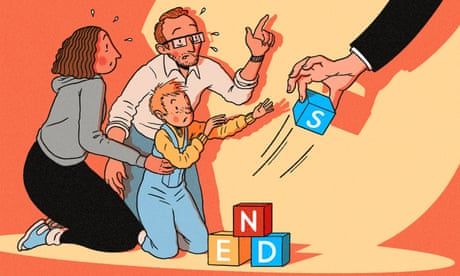
The yawning gap between funding and demand means that parents are right to fear how the government will react
For millions of us who have children with special educational needs and disabilities (Send), 2024 was a strange and often unsettling year. For a long time, we have been used to quietly fighting our battles in a political and media vacuum. But suddenly, everything has exploded: as the crisis in provision seems to constantly deepen, barely a week goes by without some or other Send story making it into the news.
My 18-year-old son, James, is autistic, and a student at a specialist school – so I watch all this very closely. Local councils in England say that “overspending” on special needs education – manifested in an annual funding gap of at least £3bn, even after the government put in extra money – now threatens more municipal bankruptcies. In the media, meanwhile, culture-warrior columnists now habitually question whether the word “needs” is even appropriate. Increases in the incidence of such conditions as autism and attention deficit hyperactivity disorder (ADHD), they say, may be a scam partly perpetrated by the merchants of identity politics, and families who manage to get dedicated help are the recipients of “golden tickets”: by implication, if people in power want to save money, there is no end of waste and mollycoddling to tackle.
Continue reading...